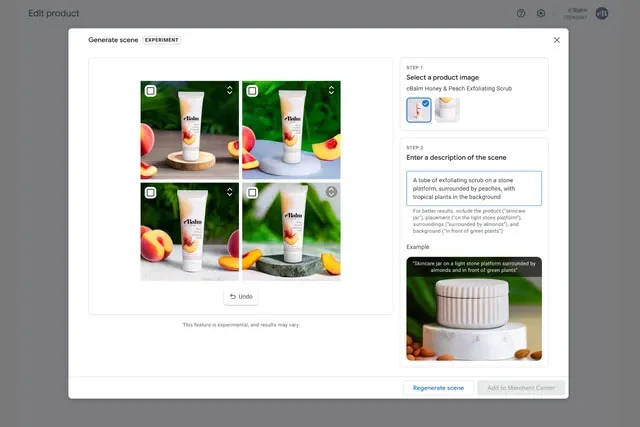Earlier this week, Google unleashed a whirlwind of announcements revealing its new, shiny tech designed to make search marketing even more sophisticated.
Overwhelmingly, AI was the hot topic of the conference. While BARD may have wiped $100bn off Google’s value, that doesn’t seem to have fazed the tech giant. Google Marketing Live suggests that us digital marketers will have AI features and controls coming out of our ears in the coming months – but how does that affect your actual ads and existing strategy?
We’ve summed up some of the key benefits that Google’s announcements should bring to your paid media, and the outcomes to expect.
1. AI can help fuel your creative
With Google increasingly pushing YouTube and PMax campaigns (which only works with various iterations of creative), it’s been a tall order for brands and businesses to respond.
Now, Google AI is here to help do some of the heavy lifting. It can generate descriptions, keywords and extensions. Ecomm businesses should be over the moon with Google’s incoming Product Studio (pictured below), where you can put your products in all manner of complementary contexts to catch the eye – ideal for holiday seasons.
The Shopping Feed is about to get a major makeover, and competition for the most visually appealing ad is going to get fierce.

2. AI will bring about more efficiency – but you should define boundaries
AI helping to write your ads is one thing, and should save your Account Manager some time, but it can never completely replace them. Tone of voice, topicality, trademarks and brand protection all play an important role in messaging.
If you’re keen to see more AI being used in your campaigns, you should work with your agency/partners to establish what your brand boundaries are. Is everything fair game? Or perhaps realism and authenticity are important brand values to you – in which case you may not be 100% comfortable with totally AI-generated imagery. These are important conversations to have.
Remember, this sudden amount of AI integration is also a learning curve for everyone. Just because Conversational AI helped write some headlines doesn’t mean all of them are perfect, or don’t require time to tweak, or learn which prompts work best. It will take time to establish where Google AI is best used for different brands and businesses.
3. Adopting a first-party data strategy should be a high priority
Legacy marketing tracking, like third-party cookies, is on its way out as legislation tightens around data tracking and ownership.
A first-party data strategy future-proofs you against those upcoming changes, and massively opens doors for transparency and deeper audience insights. In fact, 86% of people say they’re more loyal to a brand that is transparent about the data they collect. Read Michael’s blog on how capturing first-party data could help you get better results.
With Google making more moves towards a privacy-first future – including disabling third-party cookies for 1% of users in Q1 2024 – it’s time to get with the first-party programme.
4. More brand protection on Broad Match makes adoption less scary
Broad Match has long been hailed by Google as the way to go (‘broader is better’) – and it does bring about some fantastic results. However, a lack of control has put some advertisers off using it.
Finally, we’ll be able to add restrictions to ensure greater brand protection, and that your brand traffic is relevant. So if you’ve been hesitant to embrace Broad Match, now would be a great time to discuss trialling it at a campaign level with your Account Manager.
5. Asset Insights will give you more confidence in creatives
Want to take the mystery out of which assets are working? At last, Asset Insights are here to give you a real understanding of which creatives are working for certain audiences, and which aren’t.
There’s been a real shift towards ‘creative-first’ strategies as it becomes increasingly difficult to capture the attention of inundated users across platforms – Asset Insights appears to be a response to the growing demand for helpful, relevant data to back this up. Coupled with AI… well. Soon enough we’ll have the science behind creative success mastered.
The digital marketing industry has always moved at a frighteningly fast pace, and this year seems no exception. If you want to work with an agency that leverages cutting-edge tools to boost your business, talk to us today.



